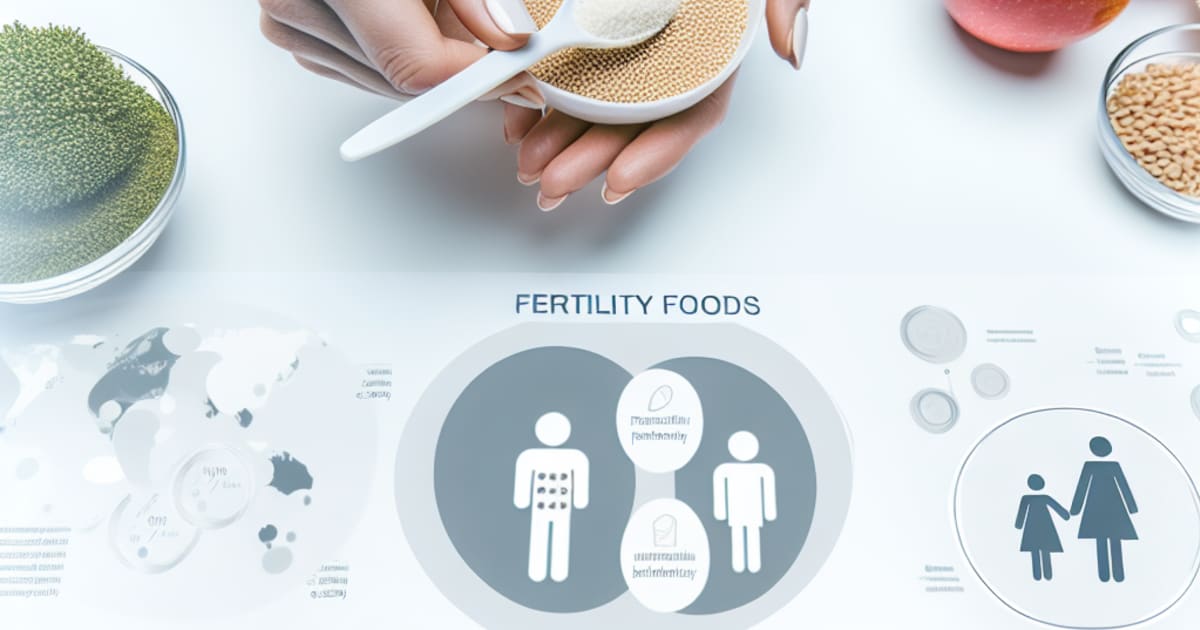
Fertility Foods: Boost Your Fertility Naturally
Introduction to Fertility Foods
When it comes to boosting fertility and preparing your body for pregnancy, a healthy lifestyle is essential. One key aspect of this is nutrition. Certain foods are known to have properties that can enhance fertility. These so-called 'fertility foods' can be a valuable addition to your diet if you're trying to conceive.
Understanding Fertility Foods
Fertility foods are those that nourish the body, support hormonal balance, and promote reproductive health. They provide essential vitamins, minerals, and other nutrients that are crucial for fertility.
The Role of Fertility Foods
Fertility foods play a significant role in preparing the body for conception and a healthy pregnancy. They can:
- Improve egg and sperm health
- Balance hormones
- Regulate menstrual cycles
- Enhance overall reproductive health
Eating a diet rich in fertility foods can therefore increase your chances of getting pregnant and having a healthy pregnancy.
Types of Fertility Foods
There are several types of fertility foods, each offering unique benefits:
-
Leafy Greens: Foods like spinach, kale, and Swiss chard are rich in folate, a B vitamin that's essential for preventing birth defects and promoting a healthy pregnancy.
-
Whole Grains: These foods provide fiber, which can help regulate blood sugar and insulin levels, both of which can impact fertility.
-
Healthy Fats: Foods like avocados, nuts, seeds, and olive oil are packed with monounsaturated and polyunsaturated fats, which can help regulate hormones and improve fertility.
-
Lean Proteins: Foods such as chicken, turkey, fish, eggs, and tofu provide essential amino acids that are crucial for reproductive health.
-
Berries and Citrus Fruits: These fruits are packed with antioxidants and vitamin C, which can enhance fertility by reducing inflammation and supporting a healthy immune system.
Incorporating Fertility Foods into Your Diet
Including fertility foods in your diet can be simple and delicious. Here are some tips:
Make Smart Swaps
Substitute refined grains with whole grains, replace unhealthy fats with healthy ones, and choose lean proteins over processed meats.
Eat a Rainbow
Try to include fruits and vegetables of various colors in your diet. Different colors often represent different types of nutrients, so a colorful plate can help ensure a balanced intake.
Stay Hydrated
Water is essential for many bodily functions, including reproduction. Aim to drink at least eight glasses of water a day.
Limit Processed Foods and Added Sugars
These can increase inflammation and disrupt hormone balance, which can negatively impact fertility.
Seek Professional Advice
If you have specific dietary needs or restrictions, it may be beneficial to seek advice from a registered dietitian or a healthcare provider experienced in fertility nutrition.
Remember, while fertility foods can support reproductive health, they are not a magic cure for fertility issues. It's important to maintain a balanced, nutrient-dense diet and lead a healthy lifestyle overall. Always consult with your healthcare provider before making any major changes to your diet or lifestyle.
